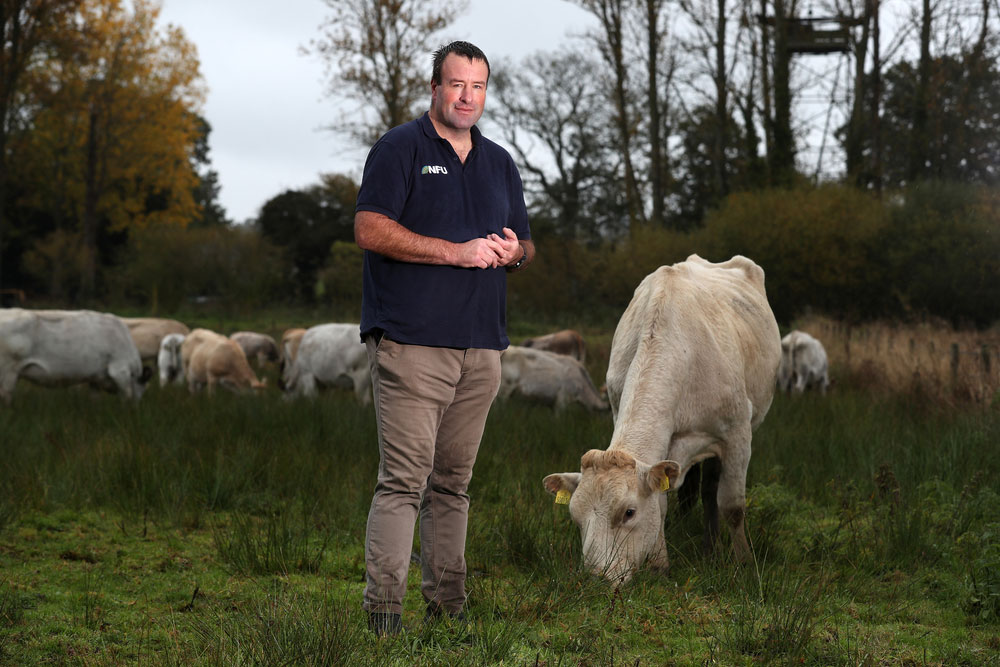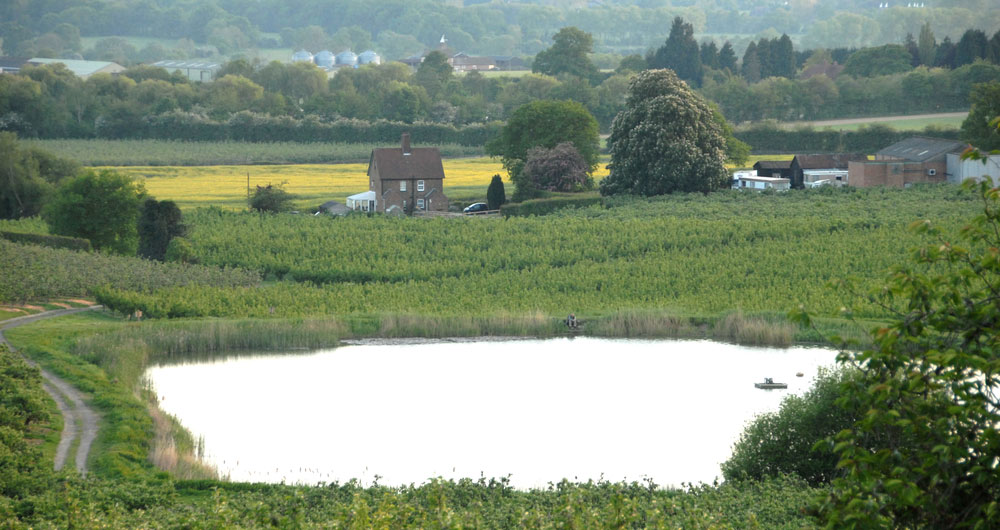As food security becomes a national priority, there is a clear opportunity for British farming to become a global leader in delivering food security while meeting the challenges of net zero and climate change.
The NFU believes that the key to the delivery of more integrated management of water will be the construction of better, more innovative water infrastructure (built interventions as well as the way we manage land) that recognises and adequately values its benefit to the environment, communities and the economy.
Reporting on behalf of the agriculture sector to the National Drought Group (NDG) on 13 July, NFU Deputy President Stuart Roberts said that the approach to flood and drought risk management needs to ‘join up’, to be more innovative and more ambitious.
Mr Roberts told the assembled regulators, water companies and environmental groups that we should no longer discard ‘surplus’ freshwater into the sea when farmers and other sectors are crying out for the resource.
He urged the government to put measures in place to facilitate the installation of more reservoirs and water efficiency measures on farms.

Mr Roberts (pictured above) said:
“Investment in new infrastructure and technology will be essential but the right support must be in place to ensure farmers remain productive and competitive.”
“We must seize opportunities to do this now by targeted use of existing countryside productivity measures, and in the longer term through the Environmental Land Management (ELM) scheme currently being developed.”
NDG members heard that above average rainfall in May and June has considerably reduced the risk of drought, but surface water dependent catchments are still less resilient to further hot, dry weather.
Water companies have enough water for the rest of the summer, although some of them may experience distribution issues if very hot weather returns and leads to very high demand. Temporary Use (hosepipe) Bans are very unlikely this summer.
Click here to read about a Public Accounts Committee report that concluded:
Government has ‘achieved very little’ in its efforts to get people to use less water while ‘no progress has been made in reducing leakage'.
NFU update on risks and impacts in farming sector
The NFU reported that in the farming sector:
- Rainfall has reduced pressure on all agricultural commodities in all regions.
- Grass growth for grazing livestock and forage production has recovered although poor early season silage and maize growth may not be recovered.
- With the cereals harvest now starting, early reports are of highly variable results for yield and quality – sometimes in the same field.
- Risks of irrigation restrictions have largely been averted, although attention is already turning to the need for above average winter rainfall to replenish groundwater in time for the 2021 irrigation season.
- Wildfire and crop fire risks are currently low.
Click here to read the National Drought Group report from the meeting.
More from NFUonline:
- England faces 'serious risk of running out of water within 20 years'
- Our dry weather advice page
- Irrigation and water resources news and advice
- NFU representing farming as member of Trade and Agriculture Commission
- Have your say on the Environmental Land Management Scheme - consultation open now
- NFU raises key issues in response to government consultation on freeports

